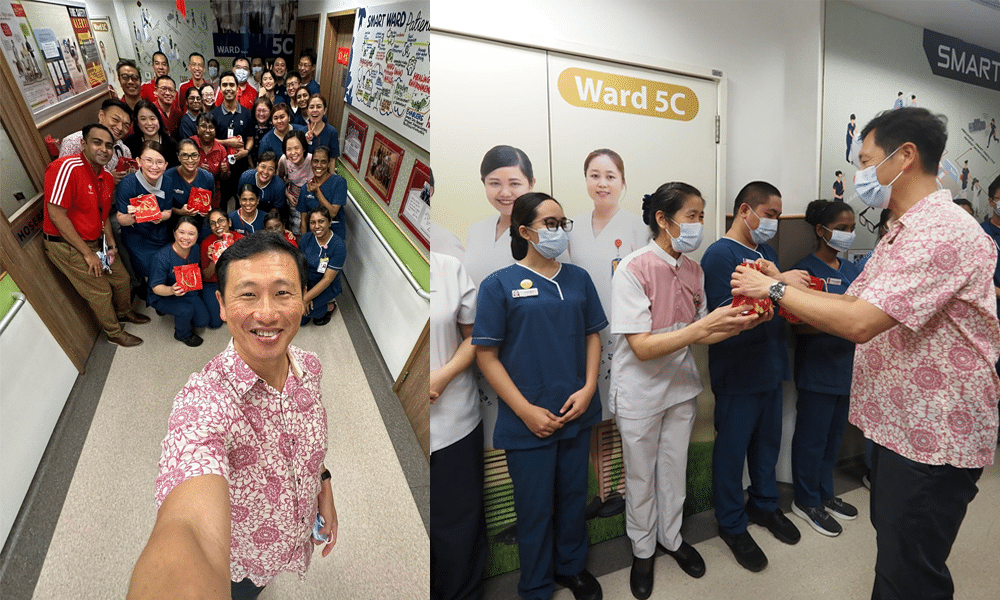In 2023, a record 5,600 nurses accepted positions in the public healthcare system, of which 4,500 have already been registered.
Health Minister Ong Ye Kung made this announcement on February 10 during his visit to Tan Tock Seng Hospital (TTSH), amidst the Chinese New Year celebrations.
This announcement sought to highlight the success of the recruitment drive, which surpassed the initial target of 4,000 nurses aimed to replenish and expand the workforce post-Covid-19.
The Ministry of Health (MOH) revealed an upward trend in nurse registration, with the figures for 2023 exceeding the previous year’s 3,400 new registrations.
This increase is part of a concerted effort to address the shortages exacerbated by the pandemic and to cater to the needs of Singapore’s ageing population.
The nation faced a significant challenge with a higher attrition rate among foreign nurses in 2021 and 2022, due to global competition for healthcare professionals as borders reopened.
Statistics shared in August 2022 indicated notable attrition among both local and foreign public sector nurses, with foreign nurses experiencing a sharp increase in their attrition rate to 14.8% in 2021, from a reported pool of 43,000 nurses at the end of 2021. Details of the attrition rate for 2022/2023 is unknown.
The attrition rate of local public sector nurses increased from 6% in 2017, to 6.3% in 2018, and then to 7% in 2019. It dropped to 5.4% in 2020 before rising to 7.4% in 2021. The exact figure for 2022 is not provided, but it is said to have remained stable.
For foreign public sector nurses, international competition has been more intense, and the attrition rate has increased more significantly, from 8.2% in 2017, to 9.1% in 2018, and then to 9.4% in 2019. It dropped to 7% in 2020 before increasing sharply to 14.8% in 2021, and then slightly dropped to 14.5% in 2022.
In response to these challenges, the MOH has outlined the need for 82,000 nurses, allied health professionals, and support care staff by 2030 to maintain healthcare services for the ageing demographic.
To retain and attract foreign talent, Mr Ong disclosed that more foreign nurses were granted permanent resident status in 2023, acknowledging their crucial role during the pandemic and in Singapore’s healthcare sector.
The majority of these nurses originate from neighbouring countries such as the Philippines, Malaysia, and Myanmar.
In a parliamentary question last July, it was revealed that over the past five years, an average of around 1,200 foreign healthcare workers were granted Permanent Resident (PR) status each year.
More than six in ten of these individuals are nurses, with the remainder including doctors, allied health professionals, and other healthcare workers.
In an effort to further incentivize the nursing profession, the MOH plans to announce a long-term incentive program before the 15th day of the Chinese New Year, similar to schemes available to teachers and officers in the Home Team and the Singapore Armed Forces.
According to Mr Ong, this move aims to significantly enhance the remuneration package for nurses, who represent the largest professional group within the healthcare system.
During his hospital visit, Mr Ong expressed gratitude to the healthcare staff working during the holiday season and distributed Chinese New Year goodie bags in Ward 5C, a testament to TTSH’s commitment to innovation in patient care.
He acknowledged the challenges faced by healthcare workers, emphasizing the importance of teamwork and mutual support in overcoming the demands of the profession.

